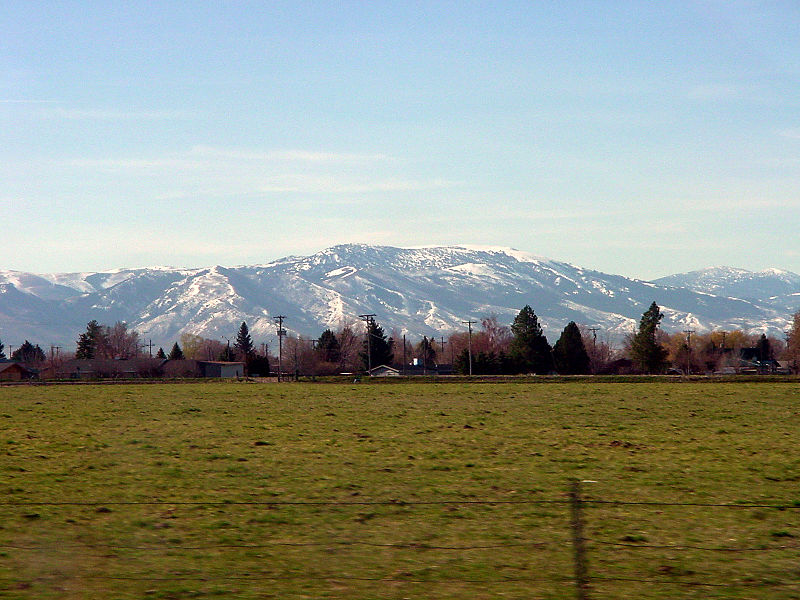#61 - go someplace with little to no light pollution and stargaze AND #62 - identify ten constellations and ten stars
As much as I love living on the East Coast, sometimes it's frustrating looking at satellite images and seeing the entire Eastern seaboard lit up like a Christmas tree. You can't see anything at nighttime! There are some dark spots in Florida, if you're willing to camp out in the middle of the Everglades...but that takes a level of commitment beyond what my fear of being eaten by a python allows me to have.
Idaho, on the other hand, is GREAT for stargazing, despite otherwise being largely bland and unappealing. (No offense, Idahoans.) Actually, now that I think about it, those are probably the necessary qualities that make a place good for stargazing.
Last night, Ricky drove us up to the top of Mount Harrison around midnight for some sweet spacetime adventures.

It's about 9,200 feet high, which is basically nothing if you're from out west and practically Mount Everest if you're from a place known for being below sea level. It was crazy dark! I had about a foot of visibility once we turned off the headlights. There was a haze around the horizon, but the sky above was incredible. I had never seen the Milky Way in real life before (Ricky was like, "Are you serious!?"), and let me tell you: IT IS AWESOME. Literally awesome. As luck would have it, we caught the one night of the Aurigid meteor shower, and we saw about ten shooting stars during the hour we were out.
I downloaded a stargazing app, which made the whole experience 10x better, because I could point the iPad at a star and it would tell me the name and show the outline of the constellation it was a part of. My favorite constellation to find was Pegasus--it takes up so much of the sky!--and Cassiopeia was another cool one. Thanks, technology.
In the car afterwards--it was too dark to get any pictures outside. (How do you do captions on the Blogger app?? I take back what I said about technology.)

That's so cool that they make an app for finding constellations! I feel like we're in the age of Star Trek technology when I hear about things like that.
ReplyDelete